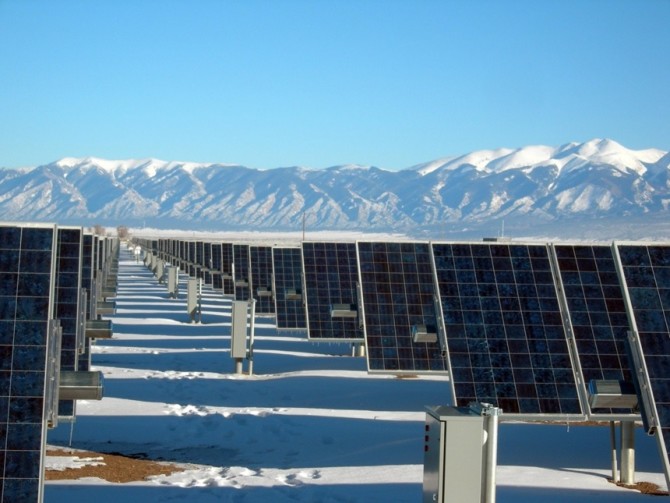-
Energy Innovation in Remote Arctic Communities
June 29, 2018 By Grant Ackerman
Without connections to wider electrical grids, communities in the remote, rural Arctic depend on diesel generators for power—which makes electricity “ten times more expensive” than in the rest of Canada or the United States, said Martha Lenio of the World Wildlife Fund-Canada Arctic Team during a recent Wilson Center Ground Truth Briefing. In addition, spilled diesel “can harm wildlife, impact food and water security, and compromise permafrost integrity,” said Lenio. These challenges have led some communities in the Arctic to seek cheaper, safer, and more innovative energy solutions, said panelists during the briefing organized by the Wilson Center’s Polar Initiative and Canada Institute.
In the far north, there is no one-size-fits-all solution. “If you’ve been to one Arctic community, you’ve been to one. They are all unique,” said Grant Sullivan, the Executive Director of the Gwitch’in Council International. The Gwitch’in Council works to empower individual communities to create their own energy plans to meet their specific needs. “There are successful projects in the circumpolar north, and we need to better understand the pitfalls they fell into and how they got out of them,” said Sullivan.
The 20/20 Catalysts program helped A. J. Esquega, Energy Coordinator for Gull Bay First Nation, feel “empowered and excited to start taking on the initiative” to develop the first fully integrated solar grid owned by an indigenous community in Canada. Today, the community uses only solar power during daylight hours; and battery storage reduces diesel consumption at night.
The rest of the world can learn from the Arctic experience. “The Alaskan and Canadian markets are examples of a global problem,” said John Ferland, President and COO of Ocean Renewable Power Company—with lessons that can be extended to South America, Asia, and other places where communities are isolated from the grid.
Ultimately, the needs of the individual communities are the most important factors in energy decisions. As Michael Sfraga, Director of the Polar Initiative, said, we cannot forget that “the community owns the table, not just the chairs.”
Grant Ackerman is a staff intern for the Polar Initiative.
Sources: Anishinabek Employment & Training Services, Gwich’in Council International, Indigenous Clean Energy Social Enterprise, Ocean Renewable Power Company, World Wildlife Fund-Canada
Topics: Arctic, Canada, climate change, community-based, consumption, energy, featured, Friday Podcasts, podcast, solar
 A Publication of the Stimson Center.
A Publication of the Stimson Center.



